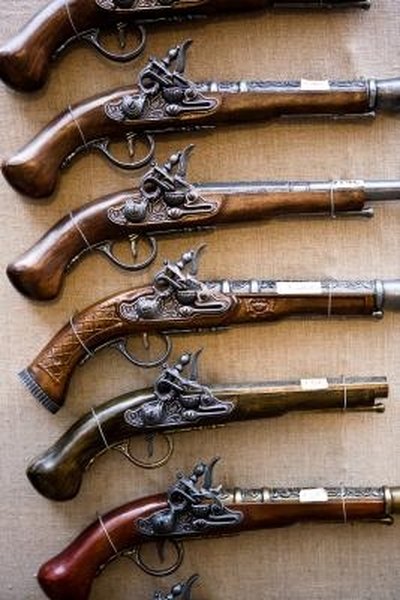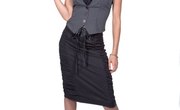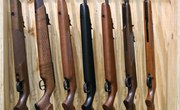
Federal Firearms License (FFL) holders must perform background checks on gun buyers at the time of sale. The Brady Act of 1993 implemented the procedures that all gun dealers follow when selling firearms. The buyer must be present and fill out the ATF form 4473. Depending on jurisdiction, the dealer calls either the FBI to perform the National Instant Criminal Background check or the state agency responsible for performing criminal background checks. Some exceptions exist to the rules where an FFL is not required to purchase a firearm.
Guns Older Than 1898
According to the National Firearms Act of 1986, any firearm manufactured prior to 1898 and not designed to use rimfire or centerfire ammunition is exempt from the act. This includes firearms that use flintlocks, matchlocks or percussion caps for the ignition system.
Replicas of Antique Firearms
Replicas of antique firearms do not fall under the National Firearms Act even if manufactured after 1989. Modern versions of flintlocks, matchlocks and percussion-fired guns do not require the involvement of an FFL holder and are sold directly to the consumer.
Airguns
Airguns fire pellets or projectiles using air, springs or CO2 gas. Because no primer or explosive propellant fires the round, they do not fall under the jurisdiction of the National Firearms or Brady acts. Retailers can sell these guns directly to buyers without a criminal background check.
Curio and Relics License Holders
The Curio and Relic License allows collectors to acquire firearms directly without the National Instant Criminal Background check. The firearms must be over 50 years old or be certified as a curio or a relic, or "derive a substantial part of their monetary value from the fact that they are novel, rare, or bizarre." FFL dealers can transfer these firearms to C&R holders directly without the check, and C&R holders can transfer them among themselves.
References
- "Federal Firearms Regulations Reference Guide"; ATF Publication 5300.4; 2005
- ATF.gov: Collectors
- ATF.gov: Brady Law
Writer Bio
Chris Orr began his career in 1988 as a sports writer. His work has appeared in "USD Vista," "UNLV Rebel Yell" and the "East Honolulu Newspaper" among other publications. Orr has a Bachelor Arts from the University of San Diego and a Master of Arts from the University of Hawaii in political science. He has worked in information technology since 1995.



